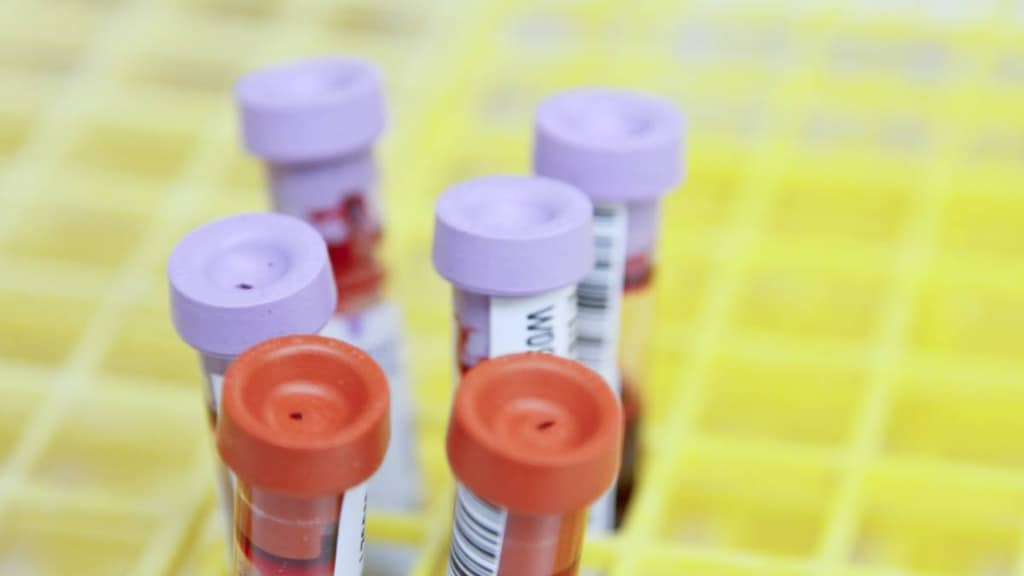What is fingolimod used for?
- Fingolimod is used to treat MS (multiple sclerosis).
Before taking fingolimod, tell your doctor:
- If you are allergic to fingolimod; any part of this medicine; or any other drugs, foods, or substances. Tell your doctor about the allergy and what signs you had.
- If you have ever had any of these health problems: Certain types of abnormal heartbeats (heart block, sick sinus syndrome, long QT on ECG), chest pain (angina), heart attack, heart failure, transient ischemic attack (TIA), or stroke.
- If you have had the varicella vaccine in the past month.
- If you are taking any drugs used for a heartbeat that is not normal.
This is not a list of all drugs or health problems that interact with fingolimod.
Tell your doctor and pharmacist about all of your drugs (prescription or OTC, natural products, vitamins) and health problems. You must check to make sure that it is safe for you to take fingolimod with all of your drugs and health problems. Do not start, stop, or change the dose of any drug without checking with your doctor.
What are some things I need to know or do while I take fingolimod?
- Tell all of your health care providers that you take fingolimod. This includes your doctors, nurses, pharmacists, and dentists.
- Avoid driving and doing other tasks or actions that call for you to be alert until you see how fingolimod affects you.
- Slow heartbeat and a heartbeat that does not feel normal may happen when first starting fingolimod. Most of the time, this happens within 6 hours of your first dose. Sometimes, this can happen up to 24 hours after your first dose. Call your doctor right away if you have dizziness, slow heartbeat or a heartbeat that does not feel normal, or tiredness.
- You will need an ECG before starting fingolimod and during treatment. Talk with your doctor.
- You may have more chance of getting an infection while you take fingolimod and for 2 months after you stop it. Wash hands often. Stay away from people with infections, colds, or flu.
- Very bad and sometimes deadly infections have happened in patients who take fingolimod. If you have any infection, are taking antibiotics now or in the recent past, or have had many infections, talk with your doctor.
- Talk with your doctor before getting any vaccines while you take fingolimod and for 2 months after you stop it. Use with fingolimod may either raise the chance of an infection or make the vaccine not work as well.
- When fingolimod is stopped, MS signs can come back and may be worse than before or during treatment. Many people do not go back to the same level of function they had before fingolimod was stopped. Most of the time, this effect happened in the first 12 weeks after stopping fingolimod but can happen later. If you stop fingolimod and your MS signs get worse, call your doctor right away.
- This medicine may raise the chance of getting cancer like lymphoma or skin cancer. Call your doctor right away if you have a change in color or size of a mole, a skin lump or growth, a big weight loss, night sweats, or swollen glands.
- The chance of skin cancer may be raised. Avoid lots of sun, sunlamps, and tanning beds. Use sunscreen and wear clothing and eyewear that protects you from the sun.
- Have your skin checked. Tell your doctor if you have any skin changes like a new wart, skin sore or reddish bump that bleeds or does not heal, or a change in the color or size of a mole.
- Liver problems have happened with fingolimod. Sometimes, this has been very bad and a liver transplant has been needed. Talk with the doctor.
- This medicine may cause harm to the unborn baby if you take it while you are pregnant.
- Women must use birth control while taking fingolimod and for some time after the last dose. Ask your doctor how long to use birth control. If you get pregnant, call your doctor right away.
- Tell your doctor if you are breast-feeding. You will need to talk about any risks to your baby.
How is fingolimod best taken?
Use fingolimod as ordered by your doctor. Read all information given to you. Follow all instructions closely.
- The first dose is given in a doctor's office or hospital. This will also be done if you are starting fingolimod again after stopping it for some time. You will be watched for at least 6 hours after the first dose of fingolimod. Some people may need to be watched overnight. Before starting fingolimod, tell your doctor about all of your other drugs and health problems.
- Take with or without food.
- Keep taking fingolimod as you have been told by your doctor or other health care provider, even if you feel well.
- Do not stop taking fingolimod without calling the doctor who ordered it for you.
- Check blood pressure and heart rate as the doctor has told you.
- Have blood work checked as you have been told by the doctor. Talk with the doctor.
- Have an eye exam as you have been told by your doctor.
- If you have not had chickenpox or a chickenpox vaccine, talk with your doctor.
- If you are not up to date with all of your vaccines, talk with your doctor. You may need to have some vaccines before treatment with fingolimod.
- This medicine may affect certain lab tests. Tell all of your health care providers and lab workers that you take fingolimod.
What do I do if I miss a dose?
- Call your doctor to find out what to do.
What are the side effects of fingolimod that I need to call my doctor about immediately?
WARNING/CAUTION: Even though it may be rare, some people may have very bad and sometimes deadly side effects when taking a drug. Tell your doctor or get medical help right away if you have any of the following signs or symptoms that may be related to a very bad side effect:
- Signs of an allergic reaction, like rash; hives; itching; red, swollen, blistered, or peeling skin with or without fever; wheezing; tightness in the chest or throat; trouble breathing, swallowing, or talking; unusual hoarseness; or swelling of the mouth, face, lips, tongue, or throat.
- Signs of infection like fever, chills, very bad sore throat, ear or sinus pain, cough, more sputum or change in color of sputum, pain with passing urine, mouth sores, or wound that will not heal.
- Signs of meningitis like headache with fever, stiff neck, upset stomach, confusion, or if lights bother the eyes.
- Signs of liver problems like dark urine, feeling tired, not hungry, upset stomach or stomach pain, light-colored stools, throwing up, or yellow skin or eyes.
- Signs of high or low blood pressure like very bad headache or dizziness, passing out, or change in eyesight.
- Chest pain or pressure.
- Shortness of breath.
- Trouble breathing that is new or worse.
- Change in eyesight, eye pain, or very bad eye irritation.
- A very bad and sometimes deadly brain problem called posterior reversible encephalopathy syndrome (PRES) has happened with fingolimod. Call your doctor right away if you have signs like feeling confused, lowered alertness, change in eyesight, loss of eyesight, seizures, or very bad headache.
- A very bad brain problem called progressive multifocal leukoencephalopathy (PML) has happened with fingolimod. It may cause disability or can be deadly. Tell your doctor right away if you have signs like confusion, memory problems, low mood (depression), change in the way you act, change in strength on 1 side is greater than the other, trouble speaking or thinking, change in balance, or change in eyesight.
What are some other side effects of fingolimod?
All drugs may cause side effects. However, many people have no side effects or only have minor side effects. Call your doctor or get medical help if any of these side effects or any other side effects bother you or do not go away:
- Headache.
- Flu-like signs.
- Stomach pain or diarrhea.
- Back pain.
- Pain in arms or legs.
- Sinus pain.
These are not all of the side effects that may occur. If you have questions about side effects, call your doctor. Call your doctor for medical advice about side effects.
You may report side effects to the FDA at 1-800-332-1088. You may also report side effects at https://www.fda.gov/medwatch.
If overdose is suspected:
If you think there has been an overdose, call your poison control center or get medical care right away. Be ready to tell or show what was taken, how much, and when it happened.
How do I store and/or throw out fingolimod?
- Store in the original container at room temperature.
- Store in a dry place. Do not store in a bathroom.
- Keep all drugs in a safe place. Keep all drugs out of the reach of children and pets.
- Throw away unused or expired drugs. Do not flush down a toilet or pour down a drain unless you are told to do so. Check with your pharmacist if you have questions about the best way to throw out drugs. There may be drug take-back programs in your area.
Consumer information use and disclaimer
- If your symptoms or health problems do not get better or if they become worse, call your doctor.
- Do not share your drugs with others and do not take anyone else's drugs.
- This medicine comes with an extra patient fact sheet called a Medication Guide. Read it with care. Read it again each time fingolimod is refilled. If you have any questions about fingolimod, please talk with the doctor, pharmacist, or other health care provider.
- If you think there has been an overdose, call your poison control center or get medical care right away. Be ready to tell or show what was taken, how much, and when it happened.
This information should not be used to decide whether or not to take fingolimod or any other medicine. Only the healthcare provider has the knowledge and training to decide which medicines are right for a specific patient. This information does not endorse any medicine as safe, effective, or approved for treating any patient or health condition. This is only a brief summary of general information about this medicine. It does NOT include all information about the possible uses, directions, warnings, precautions, interactions, adverse effects, or risks that may apply to fingolimod. This information is not specific medical advice and does not replace information you receive from the healthcare provider. You must talk with the healthcare provider for complete information about the risks and benefits of using this medicine.




